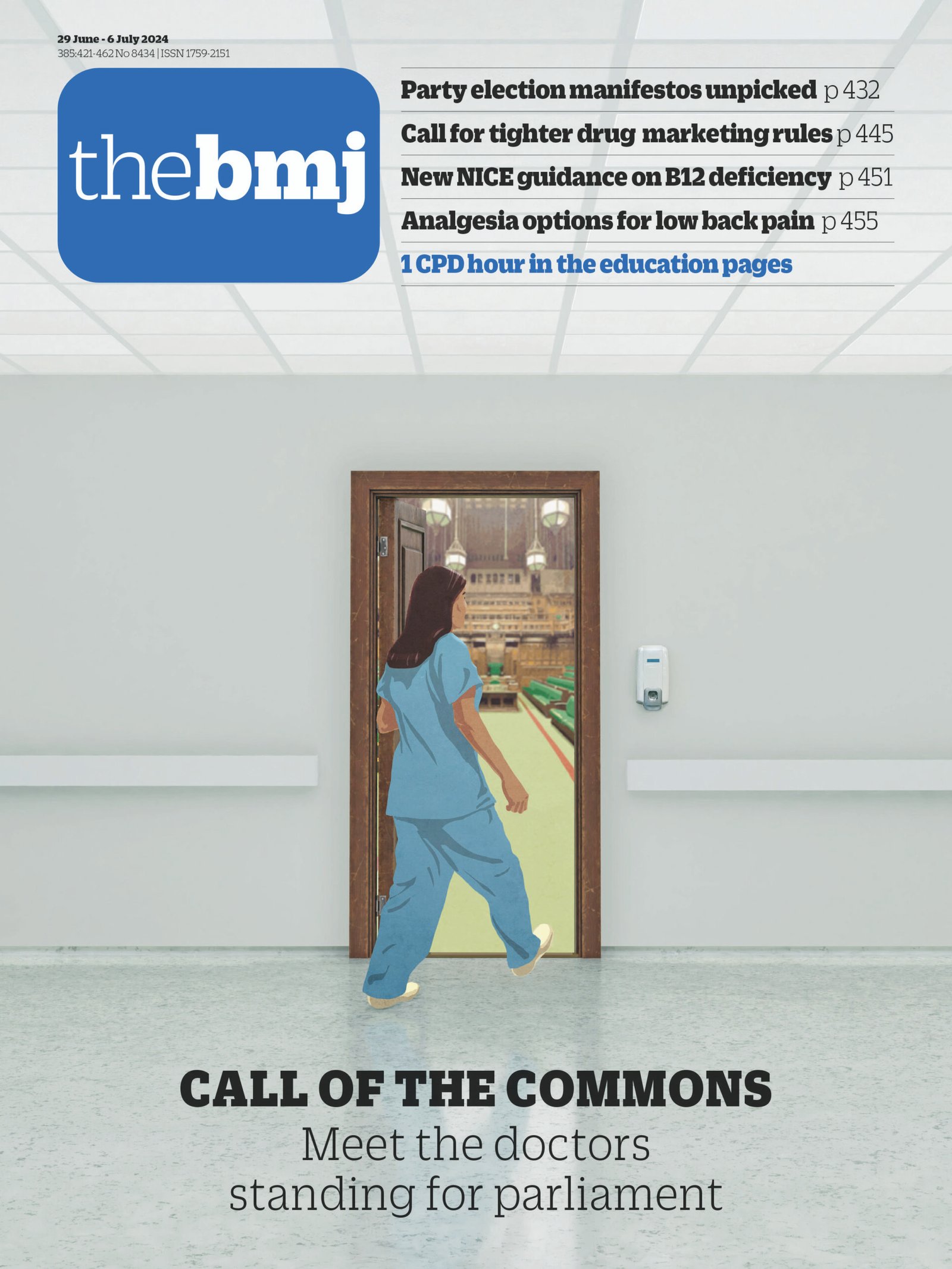All political manifestos for the 2024 UK general election have now been published, setting out the parties’ priorities and promises across a range of issues. An Ipsos poll in May 2024 showed that 35% of the 1015 respondents named the NHS as the most important issue facing Britain today. This was voted the highest priority with the largest number of votes and was up by six percentage points from April, even ahead of inflation among voters’ priorities (it’s the healthcare system, stupid!)
Health strategy is caught in an “amnesiac cycle” when ministers and governments change. They often forget what has come before, and sometimes even what they promised in their manifestos, which undermines a long term strategy on health. While spending on the NHS is a proposed priority for most political parties in this election, elements crucial to health have less certain support. Furthering women’s health has been held back by inadequate inclusion of women in clinical research and trials, failure to fund and ensure safe maternity care, minimisation of “benign” conditions such as endometriosis and the menopause, and a dearth of women’s voices in economic and policy arenas. Only one political party has a woman co-leader for the 2024 election—Carla Denyer of the Greens—and just 30% of parliamentary candidates are women (and less than 20% for Reform).1
The women’s health and research community has been neither idle, nor quiet, in advocating for the women we serve. The diverse champions of women’s health from across healthcare, research, advocacy, and among the general public have amassed a large body of evidence on unmet needs and areas for action through chief medical officer’s reports, inquiries about maternity safety, mesh and gender services scandals, the introduction of women’s health strategies and plans, the new NIHR maternity inequalities challenge, and the appointment of a women’s health ambassador (England) and champion (Scotland), as well as a network of champions in all integrated care boards. Outside of politics, any proposed research project or healthcare spending comes under scrutiny to provide strong evidence, expertise and representation as proof of its rigour. Is health policy held to the same standard?

To understand whether the UK women’s healthcare analysis, policy-relevant data, and tireless advocacy has been acknowledged and adequately included in party manifestos, we convened a group of professional and patient experts to put them to the test.2 Using a Delphi process, we distilled the recommendations from major UK reports, inquiries, and strategies from the last 10 years and created a shortlist of 15 key “asks.” These include ensuring women’s engagement throughout the process of political policy creation, action on gender-based violence and maternity inequalities, coordinated healthcare for women through health hubs, and assessment of the economic impact of policies on women. We then scored the manifestos for strengths and weaknesses regarding their inclusion (or not) of these priorities. Robust inclusion of an issue scored 2 points, cursory mention scored 1, and if the priority was not included it score 0. When we assessed the discussion of an issue to be retrograde or actively harmful, it was awarded minus 1. Each manifesto was triple-marked against the 15 asks, with a maximum of 30 marks from each scorer, and an average of the three taken for the final overall score.
There was little to choose from between major parties’ coverage of women’s health in their manifestos. All scored 8-9/30, except for Reform which scored 0. In general, the parties tackled two issues well: childcare and supporting women returning to work after pregnancy; and tackling violence against women and girls and the prosecution of perpetrators.
Two issues we identified as being of key concern—inclusion of women in clinical research and trials, and preconception healthcare—which did not feature in any manifestos. Several other issues, such as ensuring policy is built in consultation with women, tackling the 592 000 women on NHS gynaecology waiting lists, decriminalisation and access to abortion, and establishing women’s health hubs for reproductive, menopausal, and lifelong health, were considered by none or only one of the three major parties, showing that there is a real risk that women’s health in the UK could fall off the political radar.
The Conservative manifesto pointed to the 2021 Women’s Health Strategy3 as a commitment they would continue to support and develop if re-elected. The strategy has been a positive initiative in England which has focused efforts and small levels of funding on women’s health. There is a risk that the strategy’s impact will be diluted or undone by a new Labour government who may well want to depart from work done by their predecessors. In women’s healthcare, things can’t only get better; there is a risk that they might get even worse.
There are also lessons to be learned for the future UK government from the example of the US. President Joe Biden’s commitment to women’s health is impressive. His government has pledged funding as well as public and private partnerships to further the future of women and girls. A public show of financial support in a similar form would be very welcome in the UK to give a powerful message that women are a priority of the new government. But the US also serves as a warning that reproductive rights are never on truly solid ground. The limited mentions of abortion law reform and access, commitment to buffer zones, or sexual and reproductive healthcare in the UK party manifestos misses an opportunity to reassure women living in the UK that their rights will be safeguarded.
The manifestos are disappointing for women and professionals who work in this area, which invites the question about who writes them and decides which issues they prioritise. The direction of political parties is inevitably ideological, but its policy and planned activity should ideally be logical. We recommend that party manifestos and incoming governments would benefit from readily available public and expert input beyond partisan focus groups, as is mandated for any proposed UK healthcare or research spending. The current five year (at best) political cycle is too short to ensure a lifetime of good women’s health unless there is collaboration between parties and a commitment to policies that work, no matter which party says it was their idea first.
Footnotes
-
Competing interests: KW is co-principal Investigator of the MESSAGE project which receives funding from the Wellcome Trust. No commercial or other interests. JEH receives funding from UKRI Future Leaders Fellowship MR/T040750/1. No commercial or other interests. EM reports grants from NIHR for a COVID rapid response grant, Parasol Foundation for the Blood in Action study https://www.georgeinstitute.org.uk/projects/blood-in-action; royalties from Elsevier; consulting fees from Organon and Nabla Ltd; holds a patent for Bia, a wearable uterine contraction monitor; and is a Director of Lifecourse Health Ltd, a limited company for private obstetric and anaesthetic practice.
-
Provenance and peer review: not commissioned, not peer reviewed.
-
Acknowledgments: The Women’s Health and Manifesto (WHAM) team produced this analysis and all contributed to the ideas in this opinion piece: E Mullins, K Womersley, Fardowsa Abdi, Celestine Donovan-Bradley, Christine Ekechi, Leah Hazard, Jane E Hirst, Melanie Nana, Alison Perry, Ana-Catarina Pinho-Gomes, Katherine Ripullone and Stephanie Williams.










